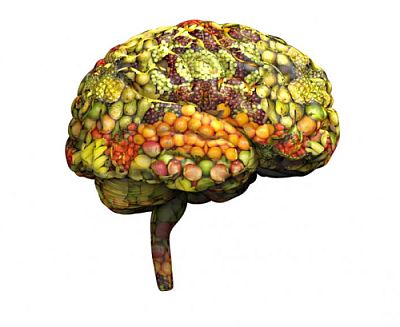Dieting has increased in recent decades, but interestingly, so has obesity. In the midst of so many people struggling to lose weight and keep it off, a new study suggests that the problem may lie in the brain. Results show that the ability to self-regulate body weight could be down to each individual’s brain structure.
 Could the ability to lose weight and keep it off be down to the integrity of connections between certain brain areas?
Could the ability to lose weight and keep it off be down to the integrity of connections between certain brain areas?
Obesity is a problem worldwide but particularly in the United States. Over one third of adults in the U.S. are obese, and the 2008 annual medical costs for people who were obese were $1,429 higher than for those who were of a normal weight.
Additionally, obesity increases risks for heart disease, stroke, type 2 diabetes, and certain types of cancer – which are some of the leading causes of preventable death.
According to the researchers of the latest study, chronic dieters are known to show extreme reactions to food cues in both the executive control and reward areas of the brain.
To further investigate, the team carried out their research on a group of 36 chronic female dieters who had a mean body fat percentage of 29.6 and a mean body mass index (BMI) of 23.9.
According to the Centers for Disease Control and Prevention (CDC), BMI can be an indicator of body fatness. If BMI is less than 18.5, a person is considered underweight. BMI between 18.5-25 is considered normal, whereas 25-30 is overweight and 30 or higher is considered obese.
The researchers asked the study participants to make simple judgments on images to avert their attention from the real task at hand, which was a food cue reactivity task. This was designed to pinpoint the executive control and reward areas in the brain through functional magnetic resonance imaging (fMRI).
‘Structural integrity in brain coincides with individual body fat differences’
Once the researchers had identified the executive and control reward areas, they used diffusion tensor imaging (DTI) to establish the integrity of the white matter track that connects these areas.
Based on the fMRI results, the team found that the participants showed greater reactivity to food images than control images.
Furthermore, the DTI results showed that participants with lower body fat percentages had greater white matter integrity between the executive control and reward areas of the brain.
The researchers note that it is unclear whether these differences in white matter integrity resulted from repeat dieting.
However, they add that although “a previous study found that repeatedly practicing a task can lead to increased [measures of white matter integrity] in particular fiber tracts, it is also possible that failures in dieting lead to obesity and obesity-related factors.”
The team says the findings support their hypothesis that structural integrity in the brain coincides with individual body fat differences. They say it is also indicative of dieting success and add:
”Individuals with reduced integrity may have difficulty in overriding rewarding temptations, leading to a greater chance of becoming obese than those with higher structural integrity.”
It is important to note that the study only included female dieters, so whether the results also apply to men is still unknown. The researchers say further study is needed to determine whether these same effects apply to male dieters.
